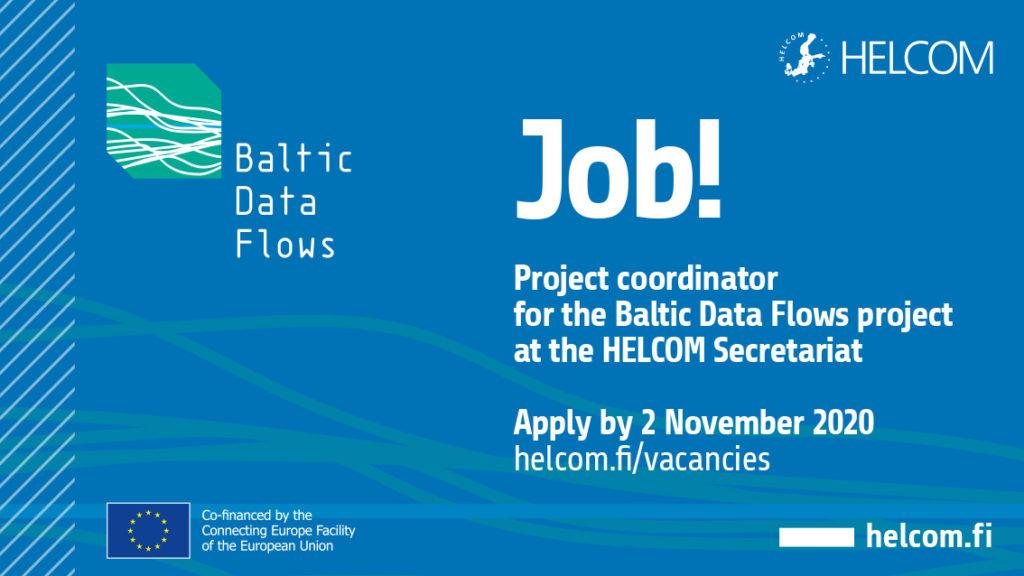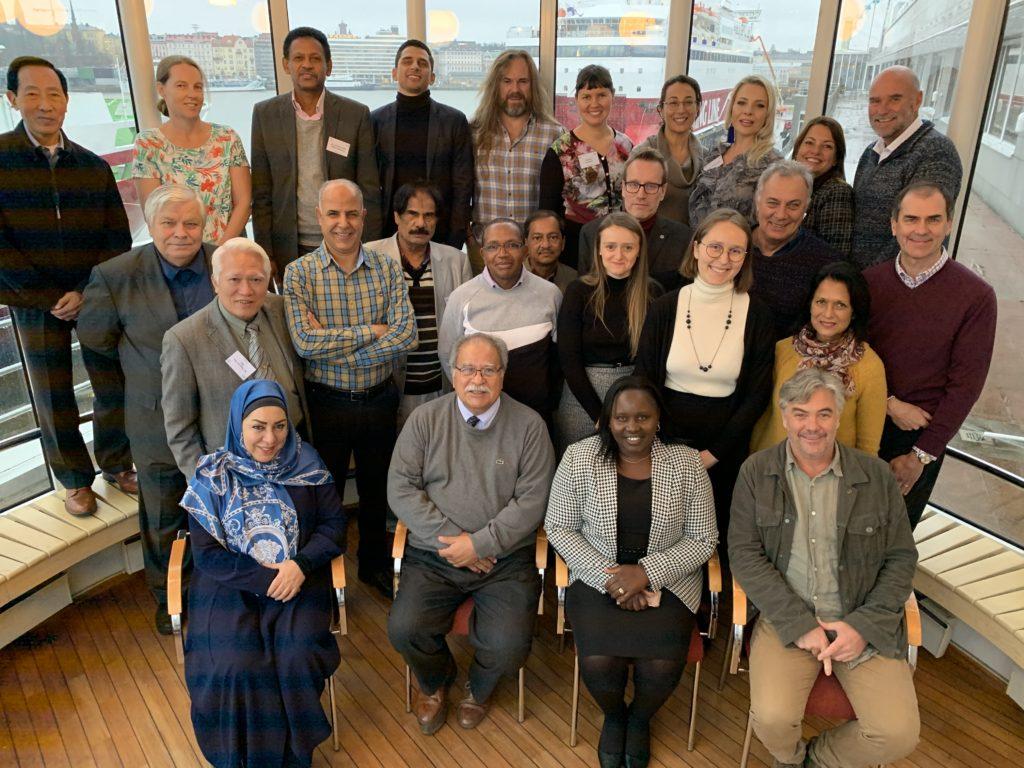At the 40th Meeting of the Helsinki Commission that was held in Helsinki (HELCOM 40-2019), Finland, from 6 to 7 March 2019, the HELCOM members addressed key orientations for the future, and also adopted several recommendations aimed at strengthening the environmental protection of the Baltic Sea.
The HELCOM countries adopted the HELCOM Recommendation on Conservation and Protection of Marine and Coastal Biotopes, Habitats and Biotope Complexes. This document contains specific steps to protect and conserve all marine and coastal biotopes, especially the endangered and vulnerable ones indicated on the HELCOM Red List.
“Currently, there are 59 different biotopes under threat in the Baltic Sea. Most of these biotopes are threatened directly due to eutrophication, or indirectly through oxygen depletion, and due to disruptive fishing methods,” said the HELCOM Chair, Ms Saara Bäck, in her statement at the meeting. “The new recommendation recognizes that these habitats may not be covered by existing regulations and therefore require protection beyond the scope of existing measures.”
Still on biodiversity, HELCOM 40-2019 also approved the HELCOM Action Plan for the protection and recovery of Baltic sturgeon. Once an integral part of the Baltic Sea ecosystem, the sturgeon became extinct in the 1950s. The plan aims at a recovery of the species within two generation periods.
Moreover, the members approved the revision of a HELCOM Recommendation directing the Baltic Sea countries to develop maritime spatial plans that consider integrated coastal management relying on the ecosystem-based approach.
HELCOM 40-2019 also adopted the amendments made to the Volume 1 of the HELCOM Response Manual that deals with oil spills and general provisions related to maritime incidents and spills.
On the Baltic Sea Action Plan (BSAP), HELCOM members furthermore took note of the ongoing update process, particularly welcoming the recent establishment of HELCOM initiatives to analyse the sufficiency of measures.
“For its part, the strategic plan for the BSAP update is advancing steadily, with first steps towards its implementation already taken through the establishment of initiatives for the analysis of sufficiency of measures – the EU-funded HELCOM-led ACTION project and the HELCOM platform on sufficiency of measures (HELCOM SOM Platform),” said the HELCOM Executive Secretary Ms Monika Stankiewicz in her official statement to the Meeting.
“Working closely together and drawing on interdisciplinary expertise from across the Baltic Sea region, both initiatives [will be] analysing if the measures that are currently in place are sufficient to achieve good environmental status for the Baltic Sea,” she said.
HELCOM 40-2019 was also the occasion for HELCOM stakeholders to present their work, with BONUS – a joint Baltic Sea research and development programme – presenting three of its projects, namely BONUS-BAMBI that deals with genetic variations and climate change, BONUS-BALTICAPP on climate change and its effects on the Baltic Sea, and BONUS-GO4BALTIC that looks into the cost-effectiveness of Baltic Sea environmental projects. In total, BONUS has invested almost EUR 100 million in 48 projects across the Baltic Sea region.
The success of BONUS has led to the inception of BANOS CSA (Baltic and North Sea Coordination Support Action) that aims at widening the geographical scope of BONUS from the Baltic Sea to also include the North Sea and the English Channel Sea.
BANOS CSA strategic partners are HELCOM, OSPAR, ICES and JPI Oceans. The HELCOM members particularly welcomed the BANOS CSA initiative and mandated HELCOM to deepen the regional cooperation within the new platform and its sister organisations from the other seas, notably on sharing scientific knowledge to reach the ecological objectives set for the Baltic Sea.
During the meeting, the ResponSEAble project took the opportunity to present its work on ocean literacy, with a focus on behaviour change.
In addition, HELCOM 40-2019 granted the Nordic Environment Finance Corporation (NEFCO) – an international financial institution established by the Nordic governments – observer status to HELCOM.
HELCOM 40-2019 also endorsed the nomination of Mr Rüdiger Strempel from Germany as the next Executive Secretary of HELCOM. Mr Strempel will start in August 2019, replacing Ms Monika Stankiewicz.
The Meeting was attended by all Contracting Parties, by Chairs and Vice-Chairs of HELCOM Groups, and the following observer organizations: Baltic Farmers’ Forum on Environment (BFFE), Baltic Sea Parliamentary Conference (BSPC), Baltic Sea States Subregional Co-operation (BSSSC) and Conference of Peripheral and Maritime Regions – Baltic Sea Commission (CPMR BSC), Coalition Clean Baltic (CCB), Federation of European Aquaculture Producers (FEAP) and World Wide Fund for Nature (WWF) as well as invited guests from the BONUS research projects and the ResponSEAble project.
For further information, please contact:
Dominik Littfass
Communication Secretary
dominik.littfass@helcom.fi


